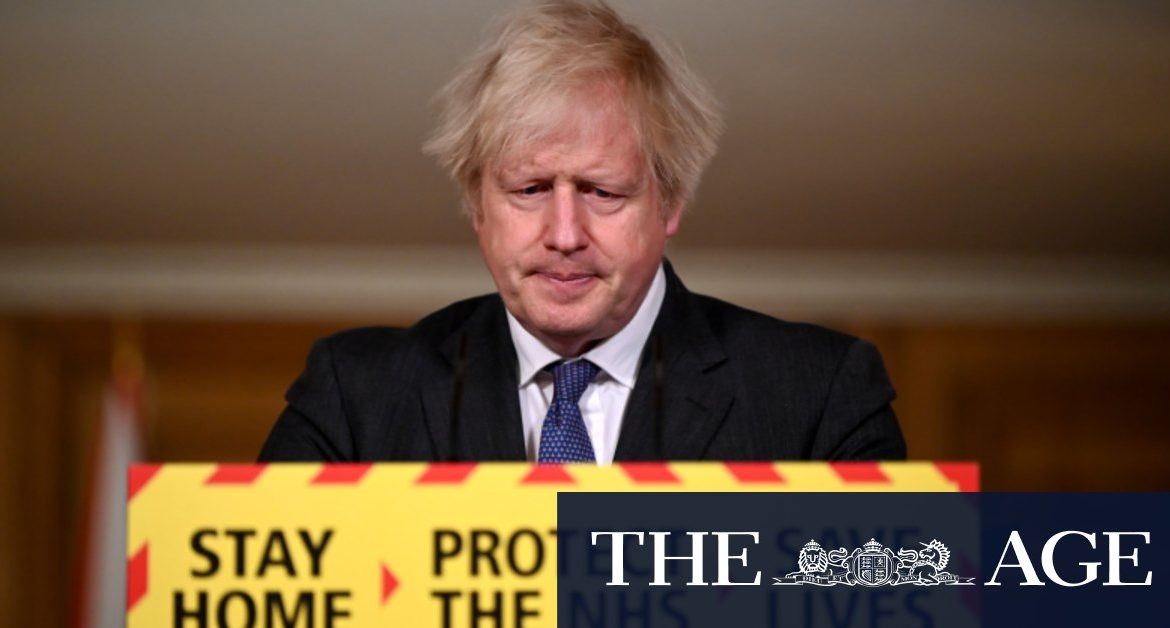But in a new development, a group of scientists advising Downing Street have found the new strain might also increase the death rate by about 30 per cent.
Loading
“If you took a man in their 60s, the average risk is that for every 1000 people who got infected roughly 10 would be expected to unfortunately die with the virus,” Vallance said. “With the new variant, for 1000 people infected roughly 13 or 14 people might be expected to die.
“So that’s the sort of change for that sort of age group and you will see a similar sort of relative increase across the age groups as well.
“But I want to stress that there’s a lot of uncertainty around these numbers and we need more work to get a precise handle on it.
“But it is obviously of concern that this has an increase in mortality as well as an increase in transmissibility.”
Scientific paper prompted announcement
The government’s New and Emerging Respiratory Virus Threats Advisory Group (NERVTAG) asked different groups of experts to examine data about the new variant and whether it was killing more people.
The London School of Hygiene and Tropical Medicine reported the strain could be 1.35 times more deadly, while scientists from Imperial College London produced a similar figure of between 1.29 and 1.36.
The University of Exeter found the risk of death could 1.91 times higher.
A Public Health England analysis initially found no link between the new strain and higher mortality but now also believes it has found new evidence supporting the theory.
“At the moment what they have said is there could be an increase in mortality,” Vallance said of the different findings.
“But there’s a lot of uncertainty and a lot more work that needs to go on. I really urge against just picking the highest number and assuming that’s correct.”
NERVTAG said while there was likely an increased risk of death compared to the original virus, “it should be noted that the absolute risk of death per infection remains low”.
Other variants could prompt UK border closure
Prime Minister Boris Johnson said he would not toughen lockdown measures in response to the new mortality information but flagged extra border controls over concern about variants first detected in South Africa and Brazil.
Scientists believe those two strains are no more transmissible than the UK variant but are increasingly worried they may not respond to the newly-approved vaccines.
“We are more concerned that they have certain features which means they might be less susceptible to vaccines,” Vallance said of the South African and Brazilian variants.
“It’s very difficult to compare between laboratories on this data and we need to get more clinical information to understand how much of an effect, if any, there is on the vaccine, but they are definitely of more concern than the one in the UK at the moment.”
Experts remain confident the UK strain will respond well to vaccines.
Loading
Between 44 and 71 cases of the South African variant have already been found in the UK.
“There will be cases here. There will be cases all over the world of these variants,” Vallance said. “The key thing is to identify, contact trace and try and make sure we contain.”
Pharmaceutical giants Pfizer and AstraZeneca have said existing products can be tweaked to respond to new variants but more resistant strains could be a problem for the millions of people who have already been given a jab.
UK Health Secretary Matt Hancock.Credit:PA
In a leaked video, Health Secretary Matt Hancock told travel agents that the South African variant might reduce vaccine efficacy by about 50 per cent and risk taking the UK back to “square one”.
“We are not sure of this data so I wouldn’t say this in public,” Hancock told the meeting.
He also praised Australia’s border controls as a way of fighting the virus, stoking speculation Britain might block the entry of non-citizens.
Johnson said arrivals from South Africa had already been banned from December 24 and all other travellers must produce a negative test and self-quarantine upon arrival.
“I really don’t rule out that we may need to take further measures still,” Johnson said.
“We may need to go further to protect our borders because we do not want, after all the effort we are going to in this country, the massive success that the NHS and others are vaccinating … put at risk by having a new variant come back in.”
Asked about Hancock’s comments, Vallance said there was no consensus on the degree to which the South African strain could get around vaccines.
“It is the case that both the South African and Brazilian variants have more differences in shape, which might mean they are recognised differently by antibodies and therefore laboratory studies are suggesting a decreased binding,” he said.
“But I think it’s too early to know the effect that will have on the vaccination in people.”
Vaccine program hits new record
Nearly 5.4 million people in the UK have received their first of two jabs. A record 410,000 were vaccinated on Thursday alone.
New cases and hospitalisations are falling or flatlining in most parts of the UK but deaths are still climbing.
Another 1404 deaths were registered on Friday, putting the UK on course to eclipse 100,000 by early next week.
Bevan Shields is the Europe correspondent for The Sydney Morning Herald and The Age.
Most Viewed in World
Loading







